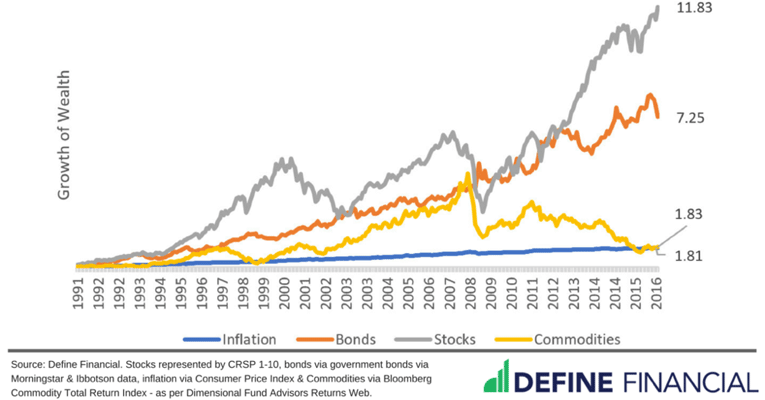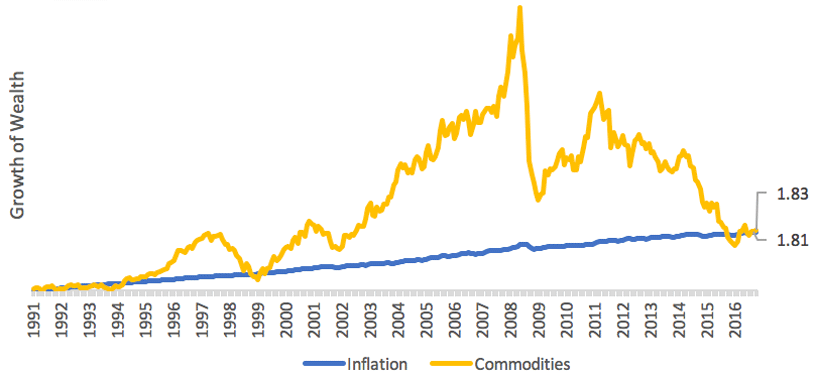Should You Be Tempted to Invest in Bitcoin?
The recent eye-popping gains in the cryptocurrency are hard to ignore, but the proposition may not be as sexy as it sounds.


Profit and prosper with the best of Kiplinger's advice on investing, taxes, retirement, personal finance and much more. Delivered daily. Enter your email in the box and click Sign Me Up.
You are now subscribed
Your newsletter sign-up was successful
Want to add more newsletters?

Delivered daily
Kiplinger Today
Profit and prosper with the best of Kiplinger's advice on investing, taxes, retirement, personal finance and much more delivered daily. Smart money moves start here.

Sent five days a week
Kiplinger A Step Ahead
Get practical help to make better financial decisions in your everyday life, from spending to savings on top deals.

Delivered daily
Kiplinger Closing Bell
Get today's biggest financial and investing headlines delivered to your inbox every day the U.S. stock market is open.

Sent twice a week
Kiplinger Adviser Intel
Financial pros across the country share best practices and fresh tactics to preserve and grow your wealth.

Delivered weekly
Kiplinger Tax Tips
Trim your federal and state tax bills with practical tax-planning and tax-cutting strategies.

Sent twice a week
Kiplinger Retirement Tips
Your twice-a-week guide to planning and enjoying a financially secure and richly rewarding retirement

Sent bimonthly.
Kiplinger Adviser Angle
Insights for advisers, wealth managers and other financial professionals.

Sent twice a week
Kiplinger Investing Weekly
Your twice-a-week roundup of promising stocks, funds, companies and industries you should consider, ones you should avoid, and why.

Sent weekly for six weeks
Kiplinger Invest for Retirement
Your step-by-step six-part series on how to invest for retirement, from devising a successful strategy to exactly which investments to choose.
I first wrote about bitcoin in early 2017. Given everything that’s happened with cryptocurrency in the last few months, we are due for an update.
For some perspective, let’s take a look at the original opening paragraph of my column from March of 2017:
"If you’ve been watching bitcoin prices lately, you already know they’ve made a record-setting run. As of this writing, a single bitcoin is valued at almost $1,300, more than an ounce of gold. To put things in perspective, bitcoin values were in the $300 — $400 range for much of 2015."
From just $107.88 $24.99 for Kiplinger Personal Finance
Become a smarter, better informed investor. Subscribe from just $107.88 $24.99, plus get up to 4 Special Issues

Sign up for Kiplinger’s Free Newsletters
Profit and prosper with the best of expert advice on investing, taxes, retirement, personal finance and more - straight to your e-mail.
Profit and prosper with the best of expert advice - straight to your e-mail.
As of this writing, the price of bitcoin is over $11,500 – that’s almost 10 times higher than at the beginning of the year. Those who invested in bitcoin years (or even in March of 2017) ago are likely rejoicing. But, should you join them? Continue reading to learn more about bitcoin, how it works, and why this investment might be worth skipping, despite its high returns.
What is Bitcoin?
Generally speaking, bitcoin is a cryptocurrency used by online firms and big businesses worldwide. One of the biggest advantages of bitcoin is that the currency can cross borders easily — facilitating international trade.
For the purposes of investing, bitcoin is similar to any other currency (or commodity) investment. This means, when it comes to your investment return, bitcoin faces the same uphill battle as investing in:
- gold
- agricultural products
- fine art
- oil
In other words, at any given time, bitcoin is worth whatever the market says it's worth. While this isn’t a problem in itself, investing in bitcoin does pose some specific challenges. As sexy as investing in bitcoin sounds — and despite the recent run-up in price — there are at least two fundamental problems with investing in bitcoin right now:
PROBLEM #1: YOU LOSE MONEY AFTER INFLATION (NEGATIVE REAL RETURNS)
When you invest in bitcoin (or gold, or oil, or other commodities, or any other currency, or fine art), you are betting the farm on price appreciation alone. Or rather, you’re betting that the price of bitcoin will go up compared with the U.S. dollar. What this means is, bitcoin is different from more conventional investments like stocks, bonds and real estate. That’s because conventional investments offer the chance to generate cash.
As an example, stocks are a slice of business ownership. Businesses exist to earn a profit. As an owner of that business, you are entitled to a slice of that profit.
That profit can either be re-invested into the business (to increase the value of the business) or paid to investors as dividends. Either way, a stock generates cash — ultimately enriching those who own shares.
The same is true for bonds. Bonds spit out cash (usually twice a year). With a bond, you (usually) get back your original investment, plus interest.
The same applies to real estate. Rental property can appreciate (or depreciate) in price. But, either way, rental property exists with the goal of generating cash for the investors — cash above and beyond the costs to maintain the property.
Unfortunately, that’s not the case for bitcoin, gold, “Forex,” commodities or fine art. These sorts of investments do not generate cash. Instead, investors can only hope they rise in value with the price of inflation.

Not only must your investment appreciate at the rate of inflation, but it must also go above and beyond inflation to make up for the transaction costs. Trust me when I say this is rarely the case. Most commodities increase at the rate of inflation. Further, currency doesn’t increase in value at all — because that’s exactly what inflation is — a decrease in the value of currency!
On average, economies grow. A growing economy can raise the demand for goods and services. This can cause prices for said goods and services to increase. Moreover, entities issuing currency usually "print" more currency. This devalues that currency, requiring more of the same currency to be required for the same good or service.
These two factors – a growing economy and the printing of more money – can cause inflation. Therefore, an investment in currency, by its nature, should not be able to grow with inflation. So, not only does your investment in currency lose money because of inflation, but your investment also loses from the bid/ask spread – the price of buying into a different currency.

Bitcoin proponents make the case that bitcoin will indeed grow above inflation. Proponents of bitcoin claim that it is a “deflationary currency.” And so far, that looks to be the case. Of course, with only a short timeline since bitcoin has been around, it may be hard to make that case definitively. This is unlike stocks, which have been around for centuries.
In short, bitcoin and similar investments are at a big disadvantage when it comes to generating an investment return. Bitcoin doesn’t generate cash like stocks, bonds and rental real estate do — and they have the added challenge of never even being able to keep up with inflation!
PROBLEM #2: MEAN REVERSION
Mean reversion is a fancy way of saying: What goes up, must come down — and vice versa.
All investments are subject to mean reversion, and bitcoin is no exception. Mean reversion itself isn’t a bad thing, but it’s still worth noting when it comes to investing in bitcoin, specifically.
As mentioned and shown in the graph above, commodities provide an investment return at just about the rate of inflation — before fees. Moreover, commodities depend upon price appreciation alone to provide an investment return. This is because commodities do not generate cash.
So, if you are going to get an investment return from bitcoin, you don’t want to be buying at a market top. However, recent run-ups in price suggest that it’s possible we are at the top of the bitcoin market — or, at least on the way.
Pro Tip: Invest Only as Much Money as You Can Stand to Lose
Try thinking of investing in bitcoin as you would buying a lottery ticket. It only costs a dollar, but you could win big. However, as historically shown with commodities, the odds are good that you’re going to lose money compared with a low-cost, diversified investment.
Most of the time, you’ll be a lot better off if you choose a long-term investment strategy that isn’t quite so volatile. You should also diversify as much as you can; this way, you won’t lose your shirt if one particular investment falls apart.
If you choose to throw your money into bitcoin in spite of this advice, just know you’re doing so at your peril. The best thing you can do is limit your investment to an amount you can afford to lose, then brace yourself for a long and bumpy ride.
A Final Warning on Cryptocurrency: Look Out for Security Holes
Yes, bitcoin is a volatile investment that may very likely be a bubble. For that reason, you could lose most (all?) of your investment. But, in addition to bitcoin being a risky investment for all the reasons that investments can be risky (i.e., volatility), bitcoin and other cryptocurrencies suffer from additional security challenges that traditional investments (such as plain vanilla stocks and bonds) do not.
Instead of the usual investment risk of your principal decreasing in value, with cryptocurrencies, you may lose your crypto assets entirely. In addition to price volatility, investors in crypto assets have lost money because of:
- outright theft,
- imperfect software (i.e., “bugs”), or even
- misplacing login information
To see the original version of this article, click HERE.
Profit and prosper with the best of Kiplinger's advice on investing, taxes, retirement, personal finance and much more. Delivered daily. Enter your email in the box and click Sign Me Up.

Taylor Schulte, CFP®, is founder and CEO of Define Financial, a fee-only wealth management firm in San Diego. In addition, Schulte hosts The Stay Wealthy Retirement Podcast, teaching people how to reduce taxes, invest smarter, and make work optional. He has been recognized as a top 40 Under 40 adviser by InvestmentNews and one of the top 100 most influential advisers by Investopedia.
-
 Ask the Tax Editor: Federal Income Tax Deductions
Ask the Tax Editor: Federal Income Tax DeductionsAsk the Editor In this week's Ask the Editor Q&A, Joy Taylor answers questions on federal income tax deductions
-
 States With No-Fault Car Insurance Laws (and How No-Fault Car Insurance Works)
States With No-Fault Car Insurance Laws (and How No-Fault Car Insurance Works)A breakdown of the confusing rules around no-fault car insurance in every state where it exists.
-
 7 Frugal Habits to Keep Even When You're Rich
7 Frugal Habits to Keep Even When You're RichSome frugal habits are worth it, no matter what tax bracket you're in.
-
 For the 2% Club, the Guardrails Approach and the 4% Rule Do Not Work: Here's What Works Instead
For the 2% Club, the Guardrails Approach and the 4% Rule Do Not Work: Here's What Works InsteadFor retirees with a pension, traditional withdrawal rules could be too restrictive. You need a tailored income plan that is much more flexible and realistic.
-
 Retiring Next Year? Now Is the Time to Start Designing What Your Retirement Will Look Like
Retiring Next Year? Now Is the Time to Start Designing What Your Retirement Will Look LikeThis is when you should be shifting your focus from growing your portfolio to designing an income and tax strategy that aligns your resources with your purpose.
-
 I'm a Financial Planner: This Layered Approach for Your Retirement Money Can Help Lower Your Stress
I'm a Financial Planner: This Layered Approach for Your Retirement Money Can Help Lower Your StressTo be confident about retirement, consider building a safety net by dividing assets into distinct layers and establishing a regular review process. Here's how.
-
 The 4 Estate Planning Documents Every High-Net-Worth Family Needs (Not Just a Will)
The 4 Estate Planning Documents Every High-Net-Worth Family Needs (Not Just a Will)The key to successful estate planning for HNW families isn't just drafting these four documents, but ensuring they're current and immediately accessible.
-
 Love and Legacy: What Couples Rarely Talk About (But Should)
Love and Legacy: What Couples Rarely Talk About (But Should)Couples who talk openly about finances, including estate planning, are more likely to head into retirement joyfully. How can you get the conversation going?
-
 How to Get the Fair Value for Your Shares When You Are in the Minority Vote on a Sale of Substantially All Corporate Assets
How to Get the Fair Value for Your Shares When You Are in the Minority Vote on a Sale of Substantially All Corporate AssetsWhen a sale of substantially all corporate assets is approved by majority vote, shareholders on the losing side of the vote should understand their rights.
-
 How to Add a Pet Trust to Your Estate Plan: Don't Leave Your Best Friend to Chance
How to Add a Pet Trust to Your Estate Plan: Don't Leave Your Best Friend to ChanceAdding a pet trust to your estate plan can ensure your pets are properly looked after when you're no longer able to care for them. This is how to go about it.
-
 Want to Avoid Leaving Chaos in Your Wake? Don't Leave Behind an Outdated Estate Plan
Want to Avoid Leaving Chaos in Your Wake? Don't Leave Behind an Outdated Estate PlanAn outdated or incomplete estate plan could cause confusion for those handling your affairs at a difficult time. This guide highlights what to update and when.